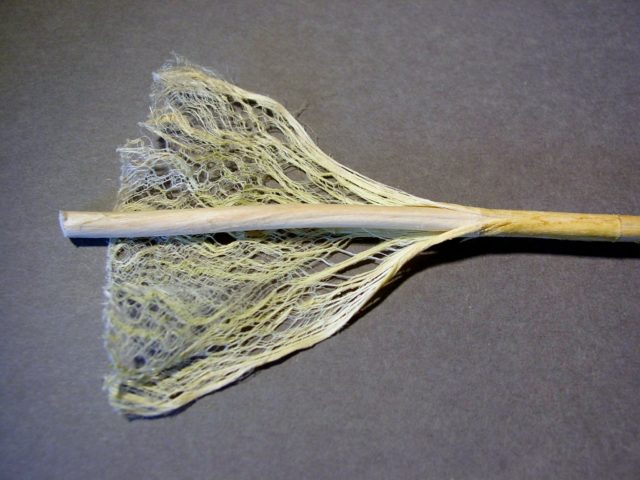
Artie Elmquist, a Weld County farmer with Boulder County ties, thinks he has the answer for corn growers who are getting hammered by plunging corn prices — hemp.
U.S. farmers brought in a record corn crop of 15.1 billion bushels in 2016, more than 1.5 billion bushels larger than 2015’s crop of 13.6 billion bushels. The two crops came on the heels of bumper crops in 2014 and 2013 as well. The ensuing corn glut drove 2016 prices down to $3.40 a bushel from a peak of $6.89 in 2012. And farmers are starting to look for something more profitable to grow.
Elmquist thinks hemp is the answer. He’s started a new company called New Plains Agro that’s seeking 2,500 acres of land to plant hemp on in 2017.
“Hemp doesn’t take much fertilizer and requires one-third of the water it takes to grow corn,” he recently told a reporter for weekly agriculture magazine The Fence Post. “It’s an easy crop to grow, and is a great crop to add into the rotation as it helps restore soil health.
“We also believe hemp production, which relies on certified organic products to control weeds, could help transition producers over to a more organic system in all of their crops and shift them away from their dependence on GMO crops.”
Hemp is the same species as Cannabis sativa marijuana but a different strain. Modern hemp varieties have had their THC effectively bred out of them, down below 0.3 percent, but do have a significant CBD content.
The ways hemp and pot are grown are dramatically different. Marijuana plants are grown to maximize flower production, so they’re spaced several feet apart from each other. Hemp is grown to maximize the plant’s fibrous content (among other qualities), so the seeds are planted only six or seven inches apart with a seed drill.
Marijuana growers attempt to eliminate seed content from the flowers, thus the name sensimilla (without seeds). Hemp growers seek to maximize seed production, since hemp seeds are valuable as a source of oil, meal and flour, which can be used as a source of both human food and animal feed.
The hemp plants can grow as tall as corn, producing long fibers that can be woven into cloth. In the 18th and 19th centuries hemp was a major resource for “home-spun” clothing, especially in northern climes where cotton couldn’t be grown, and for canvas for sail-making. The word “canvas” derives from cannabis.
Once the fiber is recovered from the stalk of the plant, the inner core, called a herd, remains. The herds can be mixed with lime and water to produce hempcrete, which Elmquist calls “a phenomenal building product.”
According to Elmquist, the various parts of a hemp crop can be worth more than $1,000 an acre, and the CBD in the flowers can be worth several thousand dollars more if it’s recovered and extracted.
New Plains Agro is looking to partner with landowners who may be interested in hemp production “through a cash rent and cost share basis.”
“We have the silent support of local bankers, but they aren’t very vocal about it just yet because they are still nervous about the federal government viewing hemp and marijuana plants as the same,” he told The Fence Post. “So under the plan we have put together, New Plains Agro would permit the acreage under its name, which removes the tenant farmer or landowner from having direct involvement with the hemp production. They would provide the land, do the irrigation, fertilize and control pests as needed, and we would consult with them on a weekly basis to address any management concerns.”
Hemp can be legally grown in 30 states, including Colorado, where it was legalized with the passage of Amendment 64.
But it can’t be legally grown in Boulder County, because shortly after the passage of Amendment 64 its priggish, nanny-statist County Commissioners banned the growing of any type of cannabis in the county’s agricultural zoning district.
The irony is that hemp isn’t a GMO crop, so it would be an obvious substitute for Bt and Roundup Ready corn and sugar beets that the commissioners are driving off the land, if they could get over their canna-phobia.
Interested landowners, investors and farmers can contact Elmquist at [email protected] or 720-771-2570














